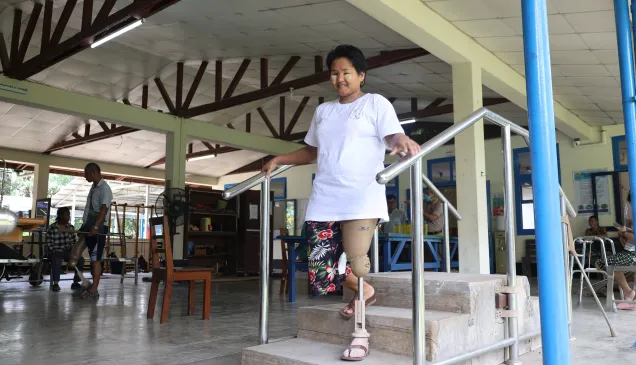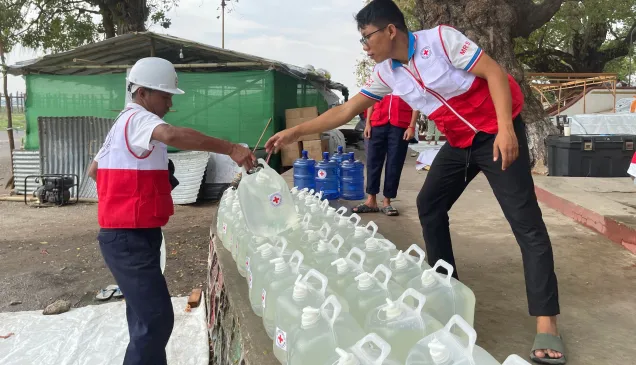Myanmar: In Rakhine, placing people at the centre
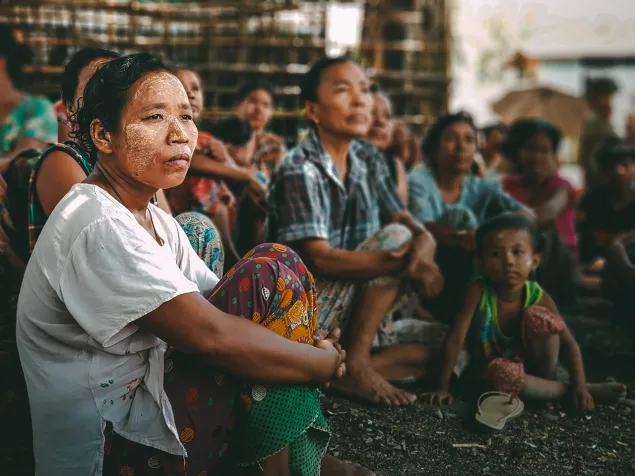
Khine Nu, a mother of six children, is worried about the monsoon season that looms ahead. Her house was washed away during Cyclone Mora in May 2017. Though neighbours helped rebuild her home, it is not strong enough to withstand a big storm.
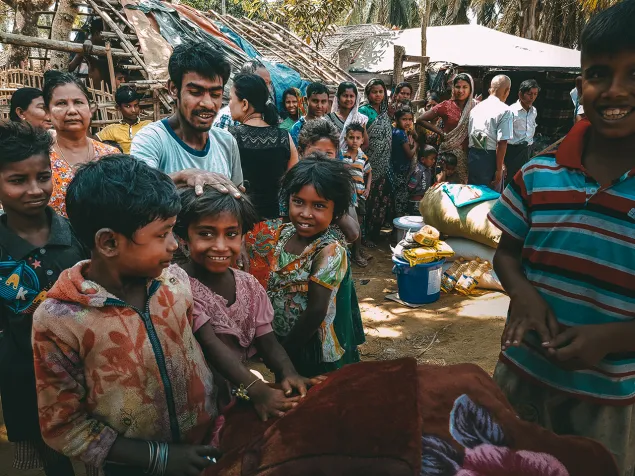
Helping all ages
Locals in Nga Ku Ya village tract with their emergency aid. In just one day, more than 5,000 people from two village tracts in northern Rakhine were able to receive food and other assistance. The materials included canned fish, rice, oil, tea, sugar, salt, blankets and water filters.
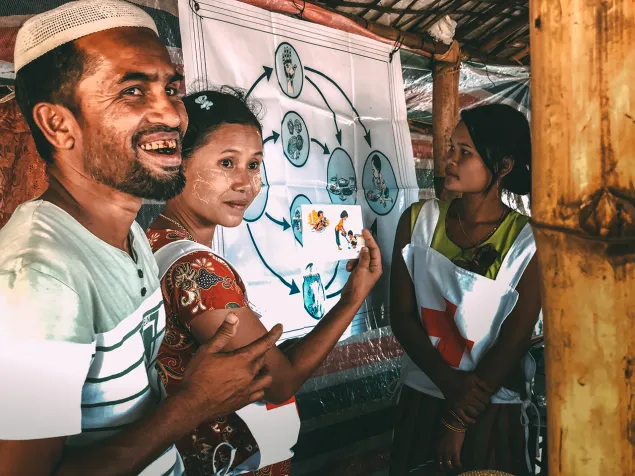
Participation by one and all
During a hygiene training session in Kyee Kan Pyin camp, a community member volunteers to help with interpretation. He is one of the many people in the temporary shelters who hope to return home soon.
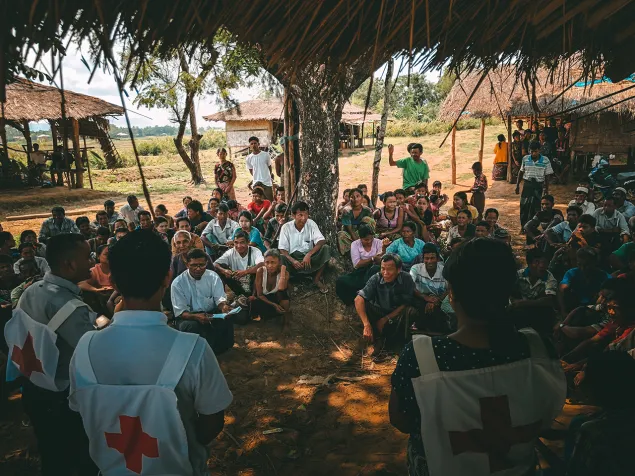
Scaling up aid
People from all communities affected by the crisis gather under the shade of a tree before a distribution of aid. Ahead of the monsoon, the Red Cross has doubled food rations across Rakhine.
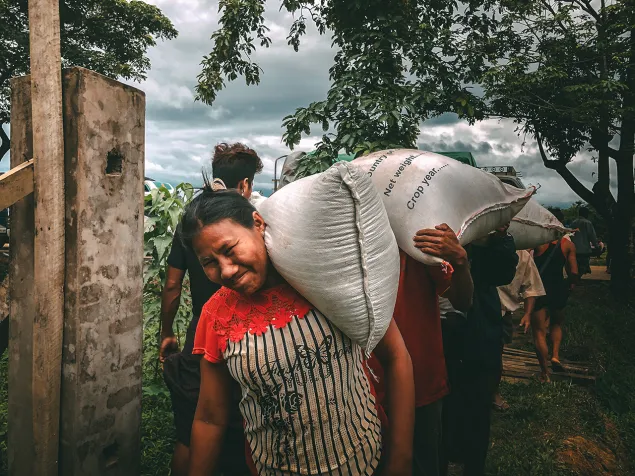
Every good act counts
Women and men alike volunteer to unload bags of aid arriving in Kyee Kan Pyin camp. During this particular visit, all 170 households from this village received double the food ration, which is likely to last them two months and help tide over the heavy rains.
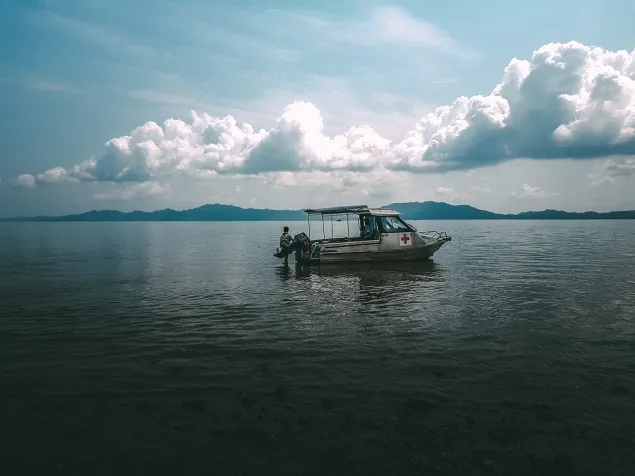
Going far and wide
In northern areas of Rakhine, travelling by boat is the only way to access communities. In the remote Pauktaw islands near Sittwe, as many as 350 families will benefit from the shelter reinforcement project before the monsoon season.
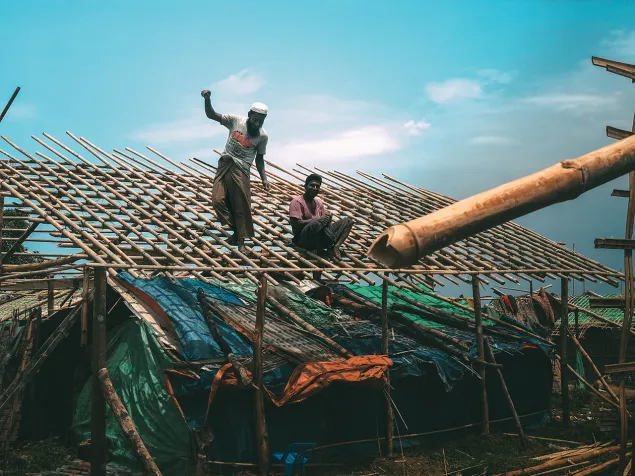
Rooting for resilience
“This is my house, working all day long under the hot sun is tiring but we have to hasten work because monsoon is coming and we need a stable roof for my three little children,” says Abu Ahlan.
The ICRC is paying and training local carpenters to make houses more resistant to cyclones, bringing both income and resilience to the community.
The outbreak of violence in Rakhine on 25 August 2017 led to one of the largest humanitarian crises in recent history, with more than 700,000 people fleeing to Bangladesh and thousands more displaced internally within the state.
Nearly one year since the crisis, many still suffer due to a lack of access to markets, basic livelihood and health care. The Red Cross Movement has assisted almost 300,000 people so far, and our work continues.
In Rakhine, people are at the centre of our work. Everywhere we go, we are reaching all communities affected by the recent violence, and our approach always remains the same – practicing neutrality and impartiality in everything we do.
And that, in turn, provides us with a measure of security and trust that makes it possible for us to do our job, reaching those who are the most vulnerable and need our help the most.
It also inspires people to lend us a hand while we carry out our work. From carrying sacks of food to transferring bamboo, offloading trucks to moving aid, wherever we travel through Rakhine, people in each community actively participate, and help get the job done.
It is what enables us to continue ten months after the violence began. It is also what gives us hope that there is a better future ahead for the people of Rakhine.


